Institut Català de Ciències del Clima
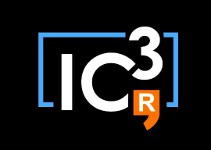 IC3 is a climate research institute created by the Government of Catalonia in 2008. IC3’s main scientific goal is to advance in the understanding of climate variability and change at both global and regional scales, in order to improve both climate predictions and future impacts. Linked to this goal, IC3 works on understanding and simulating how global change modulates variability and change in society and ecosystems.
IC3 is a climate research institute created by the Government of Catalonia in 2008. IC3’s main scientific goal is to advance in the understanding of climate variability and change at both global and regional scales, in order to improve both climate predictions and future impacts. Linked to this goal, IC3 works on understanding and simulating how global change modulates variability and change in society and ecosystems.
IC3 mainly develops top-quality research on basic and applied climate sciences, while informing society and stakeholders on future climate risks. Currently, the centre has two active Research Units: Climate Dynamics and Impacts Unit (UDIC; http://udic-ic3.wikispot.org) and Climate Forecasting Unit (CFU; http://www.ic3cfu.wikispot.org). Likewise, up to date, IC3 has two active Laboratories/Technical Units: Atmosphere and Oceans Research Lab (LAO) and Lab of Education and Community Outreach (LEDIC). For details see www.ic3.cat.
IC3 are involved in the following work packages:- WP1.3, WP3.2, WP4.1 & WP7.
Key People
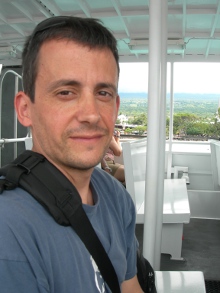
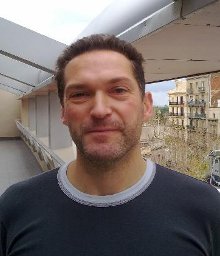 Francisco J. Doblas-Reyes / ICREA Research Professor at IC3. Head of the CFU. Main research interests are climate variability and climate prediction, ranging from one month to several years. An Earth model system is used to explore the limits of the forecast quality over different parts of the globe, in particular over Africa, South America and Southern Europe. Improving the application of this climate information to different socioeconomic sectors is the final target. The assessment of decadal predictability over Africa is being undertaken in the QWeCI framework, with special focus on the pilot study areas and on the reproducibility of the decadal Sahel drought.
Francisco J. Doblas-Reyes / ICREA Research Professor at IC3. Head of the CFU. Main research interests are climate variability and climate prediction, ranging from one month to several years. An Earth model system is used to explore the limits of the forecast quality over different parts of the globe, in particular over Africa, South America and Southern Europe. Improving the application of this climate information to different socioeconomic sectors is the final target. The assessment of decadal predictability over Africa is being undertaken in the QWeCI framework, with special focus on the pilot study areas and on the reproducibility of the decadal Sahel drought.
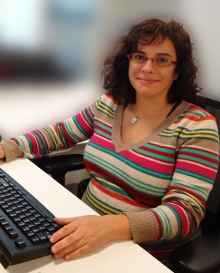 Karina Laneri / Postdoctoral Researcher at UCID/IC3. My current research interest is the study of the interaction between climate and infectious diseases. I applied dynamical models that incorporate rainfall explicitly to study epidemic malaria in North-West India using recently developed statistical tools. Now, at IC3 (QweCI), I am studying the applicability of those models to other malaria regions in Africa. I am specially interested in assessing the potential of those models for prediction.
Karina Laneri / Postdoctoral Researcher at UCID/IC3. My current research interest is the study of the interaction between climate and infectious diseases. I applied dynamical models that incorporate rainfall explicitly to study epidemic malaria in North-West India using recently developed statistical tools. Now, at IC3 (QweCI), I am studying the applicability of those models to other malaria regions in Africa. I am specially interested in assessing the potential of those models for prediction.
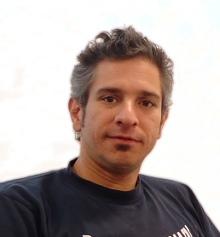 Carlos Dommar / Postdoctoral Researcher at UCID/IC3. I am a theoretical ecologist interested in an integrative application of the methods of nonlinear dynamics, evolutionary game theory, adaptive networks, statistical mechanics and computational approaches, such as individual-based modelling, to tackle fundamental questions in ecology, and disease dynamics and evolution. Currently I study the effects of external forcing on the dynamics of ecological systems, in particular on the spatial spreading and prevalence of infectious diseases. The goal is to understand disease spatio-temporal patterns, and the evolution of pathogen traits, such as virulence in changing environment. Within QWeCI I study the role of climate change on both geographical distribution and evolution of pathogenicity of vector-borne diseases.
Carlos Dommar / Postdoctoral Researcher at UCID/IC3. I am a theoretical ecologist interested in an integrative application of the methods of nonlinear dynamics, evolutionary game theory, adaptive networks, statistical mechanics and computational approaches, such as individual-based modelling, to tackle fundamental questions in ecology, and disease dynamics and evolution. Currently I study the effects of external forcing on the dynamics of ecological systems, in particular on the spatial spreading and prevalence of infectious diseases. The goal is to understand disease spatio-temporal patterns, and the evolution of pathogen traits, such as virulence in changing environment. Within QWeCI I study the role of climate change on both geographical distribution and evolution of pathogenicity of vector-borne diseases.
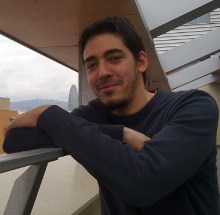 Javier García-Serrano / Postdoctoral Researcher at CFU/IC3. Current scientific activity aims at exploring interannual-to-decadal predictability of the western and southern African climate (QWeCI WP3.2). Research interests also include ENSO influence on North Atlantic/Europe, Tropical Atlantic influence on North Atlantic/Europe, particularly the Atlantic Niño and the Subtropical North Atlantic modes, Teleconnections in response to summer Mediterranean SST, and the West African Monsoon system.
Javier García-Serrano / Postdoctoral Researcher at CFU/IC3. Current scientific activity aims at exploring interannual-to-decadal predictability of the western and southern African climate (QWeCI WP3.2). Research interests also include ENSO influence on North Atlantic/Europe, Tropical Atlantic influence on North Atlantic/Europe, particularly the Atlantic Niño and the Subtropical North Atlantic modes, Teleconnections in response to summer Mediterranean SST, and the West African Monsoon system.